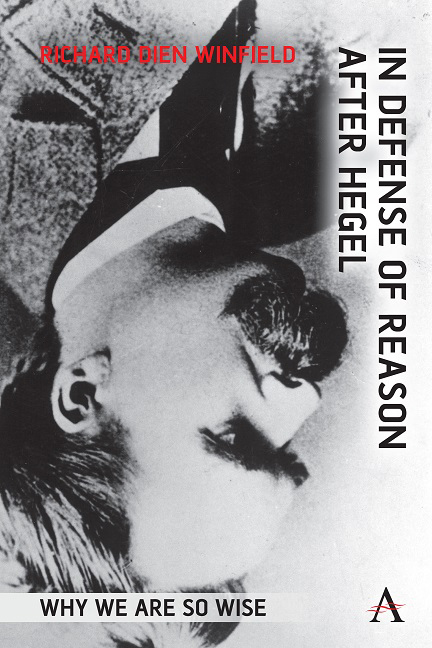Book contents
- Frontmatter
- Contents
- Acknowledgments
- Introduction
- 1 Why We Are So Wise: Hegelian Reflections on whether Reason Can Be Enhanced
- 2 Self-Determination in Logic and Reality
- 3 Hegel’s Overcoming of the Overcoming of Metaphysics
- 4 On Contradiction: Hegel versus Aristotle, Sextus Empiricus, and Kant
- 5 Overcoming Actuality: How Hegel Frees Us from the Prison of Modality
- 6 Time and Reason
- 7 Hegel and the Problem of Consciousness
- 8 Hegel and the Origin of Language
- 9 The Logic of Right
- 10 A Dream Deferred: From the US Constitution to the Universal Declaration of Human Rights
- 11 World Spirit on the Campaign Trail in Georgia: Can the Philosophy of Right Be a Guide to Social Reform?
- 12 The Classical Nude and the Limits of Sculpture
- Bibliography
- Index
- Frontmatter
- Contents
- Acknowledgments
- Introduction
- 1 Why We Are So Wise: Hegelian Reflections on whether Reason Can Be Enhanced
- 2 Self-Determination in Logic and Reality
- 3 Hegel’s Overcoming of the Overcoming of Metaphysics
- 4 On Contradiction: Hegel versus Aristotle, Sextus Empiricus, and Kant
- 5 Overcoming Actuality: How Hegel Frees Us from the Prison of Modality
- 6 Time and Reason
- 7 Hegel and the Problem of Consciousness
- 8 Hegel and the Origin of Language
- 9 The Logic of Right
- 10 A Dream Deferred: From the US Constitution to the Universal Declaration of Human Rights
- 11 World Spirit on the Campaign Trail in Georgia: Can the Philosophy of Right Be a Guide to Social Reform?
- 12 The Classical Nude and the Limits of Sculpture
- Bibliography
- Index
Summary
Contempt for truth is rampant in a world whose most powerful leaders denounce the independent press as an organ of phony news, propagate “alternate facts,” betray partners with abandon, and spread brazen falsehoods with neither remorse nor political cost. Compounding the mystification is the proliferation of unfiltered opinion in the web of internet connectivity, where the ceaseless dissemination of information overwhelms critical discrimination.
More insidious, however, is the attack on reason from within the philosophical community. No longer do skeptics just suspend judgment while examining whether they can counter every new truth claim with equal argument. Instead, cruder dogmatists reign, confident in the assumption that reason is empty and formal, incapable of obtaining any new truth on its own and only fit to certify the consistency of given suppositions. Thought, they tell us, can only reflect on the judgments of empirical science, our linguistic usage, our common moral intuitions, our historical conventions, or our aesthetic tastes and analyze to what degree they cohere. Alternately, we can deconstruct our knowledge, ethical, and aesthetic claims and expose the various contingent conditions that underlie them and seal their corrigible relativity. On both fronts of analysis and deconstruction, the philosophical academy propagates the disempowerment of reason, all the while completely ignoring how the denial of the independent sovereignty of reason robs that diagnosis of any global authority.
The destruction of reason by our undertakers of philosophy cannot succeed. It is pointless to use philosophy to cure us of its lure, since doing so enlists and thereby endorses its authority. The reigning orthodoxy may not have the faintest clue how reason can free itself of all juridical assumptions, overcome foundations, and achieve autonomy. Yet the philosophical tradition offers one figure, who haunts the margins of the canon but provides the path for resurrecting the unqualified promise of reason. This is Hegel, and if we stand on his shoulders and think through what he has and should have done, we can defeat the assault on philosophy by the assassins of reason.
The following investigations build upon and enlist Hegel's arguments to empower reason to conceive the categories of autonomous thought, the fundamental character of nature and mind, and the reality of freedom in which normative conduct resides.
- Type
- Chapter
- Information
- In Defense of Reason after HegelWhy We Are So Wise, pp. 1 - 6Publisher: Anthem PressPrint publication year: 2022



